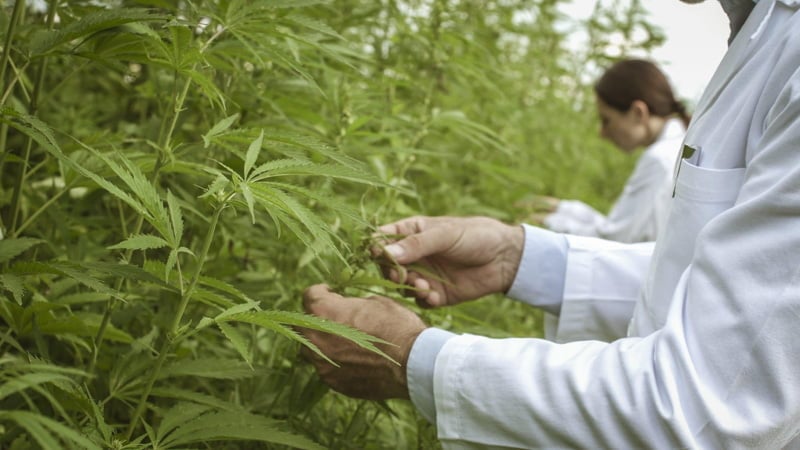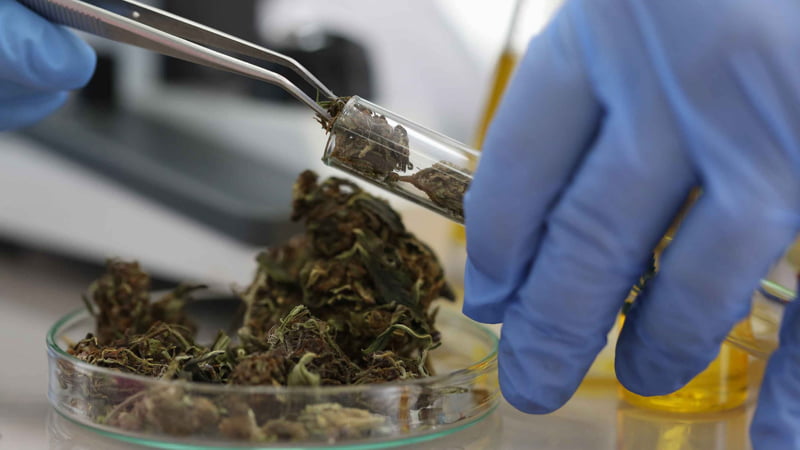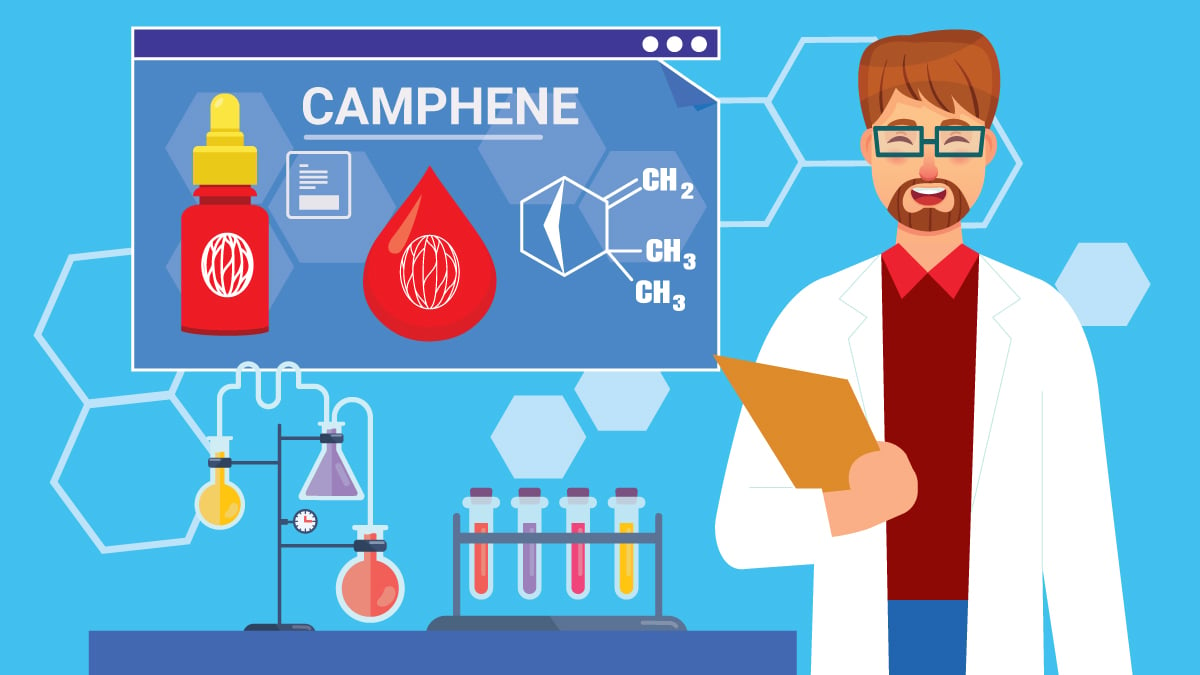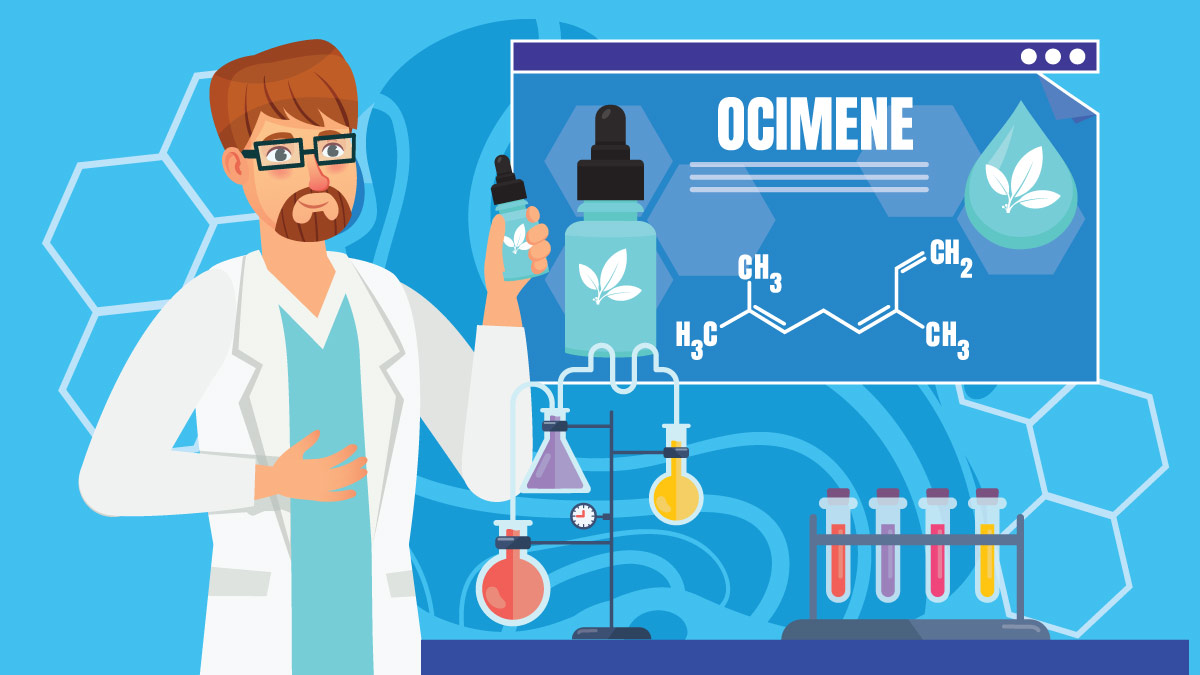Who Is Dr. Ethan Russo, MD? The Leading Medical Cannabis & Terpene Expert
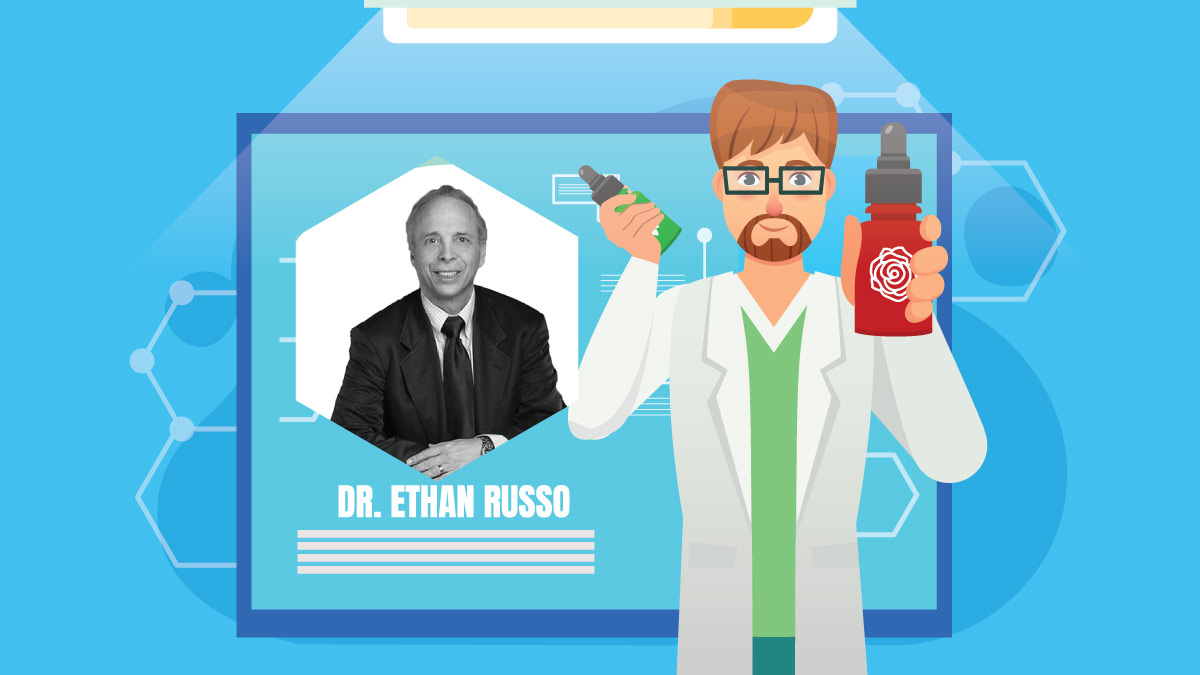
Ethan Russo, MD, is a celebrated figure in the field of cannabis research.
He’s a member of several cannabis-related organizations, such as the International Cannabis and Cannabinoids Institute, a biotechnology company called PHYTECS, and G.W. Pharmaceuticals (U.K.).
He’s currently the Founder-CEO of Credo-Science — a biotechnology company focusing on the endocannabinoid system.
Dr. Russo is a board-certified neurologist, who graduated from the University of Pennsylvania (Psychology), and the University of Massachusetts Medical School.
He then held residencies in Pediatrics in Phoenix, Arizona, and in Child and Adult Neurology at the University of Washington in Seattle.
His Early Years
Russo spent his initial years in various roles in the medical field. Graduating in Psychology from the University of Pennsylvania (September 1970 – May 1973), he studied anatomy at the University of California, Davis (September 1973 – June 1974).
Next, he went on to the Faculte libre de Medecine de Lille (France), where he pursued medical studies (September 1974 – June 1975).
This was followed by studying medicine at the University of Massachusetts Medical School (September 1975 – June 1978), after which he went on to become a part of the Phoenix Hospitals Affiliated Pediatrics Program (July 1978 – June 1980).
He finished the program and went on to study child and adult neurology at the University of Washington, Seattle (July 1980 – June 1983).
His first official research experience was at Harvard University. It was a short stint lasting from June to August 1973, where he was a laboratory assistant to Dr. Dorothy Villee, an accomplished endocrinologist. This work helped to shape his interest in the endocannabinoid system that would define his career in the years to come.
Russo’s published works show a keen interest in Amazonian cultures from early on, such as a paper published in 1992.
It details the treatment of headaches, specifically migraines, in the indigenous traditions of five native Amazonian tribes, studied through the means of ethnobotanical and ethnopharmacological methods [1].
1995 Peru: A Turning Point
Ethan Russo had always had a passion for ethnobotany and began actively researching the field in 1990 alongside his other works during that period.
In 1995, he completed a 3-month sabbatical undertaking ethnobotanical research with the Machiguenga people of the Amazonian rainforest in Parque Nacional del Manu, Peru.
He says in an interview, “I decided to dedicate the rest of my career to this pursuit,” indicating that it had been a transforming experience for him. He is now considered one of the foremost experts on the unique interactions of the human endocannabinoid system and the diverse compounds found in Cannabis plants.
G.W. Pharmaceuticals
Russo was the Senior Medical Advisor and study physician to G.W. Pharmaceuticals during the years 2003-2014.
This was an important phase in his career because of the critical role he played in Phase I to Phase III medical trials of two groundbreaking cannabis-derived drugs brought out by the company — Sativex® and Epidiolex®.
Sativex® is a special spray that is administered into the mouth and contains “principal cannabinoids delta-9-tetrahydrocannabinol (THC) and cannabidiol (CBD), as well as specific minor cannabinoids and other non-cannabinoid components”.
It’s an FDA-approval pending drug used to treat muscle spasms and stiffness caused by multiple sclerosis. Since it contains the psychoactive compound delta 9 THC, it will likely take longer to get through the U.S. clinical trials and receive approval.
Epidiolex® holds the distinction of being the first and only FDA-approved CBD drug to date.
It’s prescribed for severe cases of epilepsy, where CBD and the associated cannabis-derived compounds that produce the “entourage effect” have been shown to have a high level of symptom alleviation.
Russo published an article that summed up how cannabis has been used to treat epilepsy since ancient times. He talks of its use in the Assyrian cultures, continued into the Arabic traditions, and also in the Ayurveda traditions of ancient India, where it still survives today.
After a long period of prohibition in the 20th century, studies in the U.S. restarted in the 1970s and have progressed into the contemporary landscape where CBD’s beneficial effects on reducing epileptic seizures are now common knowledge.
Dr. Ethan Russo on “The Entourage Effect”
Russo has several feathers in his hat in the field of Cannabis research. Perhaps the most prominent of these is his paper “Taming THC: Potential Cannabis Synergy and Phytocannabinoid-Terpenoid Entourage Effects.” [2]
Published in 2011, it has since been cited in 285 PubMed articles, a rare feat for such a niche subject.
This is also an indication of increased interest in cannabis in recent years, especially since the passing of the 2018 Farm Bill.
He published another popularly cited paper in 2019 called “The Case for the Entourage Effect and Conventional Breeding of Clinical Cannabis: No “Strain,” No Gain,” which shows 147 citations on Google Scholar.[3]
His case for the cascading effects of various compounds presents alongside THC and CBD in cannabis is a strong one that has informed and inspired many who came both before and after him. His paper shows that as early as 1998, this effect was already considered an essential part of how botanical drugs were more effective than their isolated counterparts.
To put it in the current context and simpler terms, a 99.9% pure CBD isolate is less effective than what is called a “full-spectrum” cannabis extract when it comes to treating various diseases and symptoms. This is because CBD is helped along. Its effects are enhanced and multiplied by the presence of various other cannabinoids and terpenes working together that forms to complete spectrum of active and inactive compounds found in the cannabis plant.
Russo gives a short but clear description of these interactions in an interview with HempGrower.
It’s interesting to note that Epidiolex, the drug mentioned earlier in this article, is not based on an isolate. It is made up of several compounds that are precisely extracted from the Cannabis plant to create the beneficial effects that it has on people with epilepsy.
Russo has played a pivotal role in highlighting this effect of the full spectrum of the compounds found in the cannabis plant.
The Case For 1% THC: Russo Speaks Out for Raising The 0.3% THC Limit
The Agriculture Improvement Act of 2018, popularly known as the 2018 Farm Bill, opened many doors for the cannabis and hemp industry. This bill brought immediate benefits to hundreds of thousands, if not millions of people, whose lives have been changed thanks to the wide availability of CBD products.
However, this bill brought its fair share of problems.
The 0.3% THC limit is the most contested part of the bill, actively opposed by groups such as Vote Hemp, the Kentucky Hemp Association, and the American Farm Bureau Federation.
Russo is one of the proponents for this cause, and he supports the push for raising the legal THC limit to 1%.
The 0.3% is an arbitrary figure used by a 1976 Canadian research group to form a benchmark to distinguish their THC-rich cannabis plants from their hemp.
Furthermore, the THC % was measured in the plant’s leaves, where THC concentration is much lower in both species. The Farm Bill requires the measurement to be done in the flowers, where the cannabinoid concentrations are the highest.
Russo is strongly in favor of increasing this limit to 1% THC, stating in an interview on the subject that it is a scientifically derived standard rather than an arbitrary one.
It’s sufficiently low on psychoactivity to be of no interest to recreational users while being highly beneficial to those using it for its therapeutic and medicinal properties. He gives exact calculations of the dosage, showing that it’s highly unlikely to be abused for its psychoactive effects at that level of concentration.
Raising the limit would also help by bringing the costs of operations down by making it easier to grow, extract and create derivative products.
List of Dr. Ethan Russo Research Papers
Ethan Russo has been involved with dozens of research studies covering various cannabinoids and terpenes.
Here’s a list of his work over the course of his career:
- The Case for the Entourage Effect and Conventional Breeding of Clinical Cannabis: No “Strain,” No Gain. (2019)
- Clinical endocannabinoid deficiency reconsidered: current research supports the theory in migraine, fibromyalgia, irritable bowel, and other treatment-resistant syndromes. (2016)
- Handbook of psychotropic herbs: A scientific analysis of herbal remedies for psychiatric conditions. (2015)
- Taming THC: potential cannabis synergy and phytocannabinoid‐terpenoid entourage effects. (2011)
- Cannabinoids in the management of difficult to treat pain. (2008)
- Phytochemical and genetic analyses of ancient cannabis from Central Asia. (2008)
- Clinical endocannabinoid deficiency (CECD): can this concept explain the therapeutic benefits of cannabis in migraine, fibromyalgia, irritable bowel syndrome, and other treatment-resistant conditions? (2008)
- Cannabis, pain, and sleep: lessons from therapeutic clinical trials of Sativex®, a cannabis‐based medicine. (2007)
- History of Cannabis and Its Preparations in Saga, Science, and Sobriquet. (2007)
- A tale of two cannabinoids: The therapeutic rationale for combining tetrahydrocannabinol and cannabidiol. (2006)
- Agonistic Properties of Cannabidiol at 5-HT1a Receptors. (2005)
- Clinical endocannabinoid deficiency (CECD): can this concept explain the therapeutic benefits of cannabis in migraine, fibromyalgia, irritable bowel syndrome, and other treatment-resistant conditions? (2004)
- Hemp for Headache: An In-Depth Historical and Scientific Review of Cannabis in Migraine Treatment. (2001)
An Eye On The Future: Russo, Whitley and CReDO Science
Russo is by now considered to be one of the leading experts in the field of cannabis research in the context of how it affects the human body and mind through the endocannabinoid system.
After serving in various high-power roles at companies like PHYTECS, G.W. Pharmaceuticals, and most recently at EndoCanna, Russo has taken the next step in his illustrious career in the form of CReDO science. It’s a joint venture between him and fellow researcher Nishi Whitley, where they aim to create disruptive Cannabis innovations that will be used for medical, industrial, and diagnostic purposes.
However, as explained by Whitley, one of the major points of the company is that it’s focussing on the endocannabinoid system itself as the crux of its studies into developing non-toxic and relatively cost-effective ways of dealing with a variety of problems.
This is not another company looking for novel ways to use the cannabis plant and its compounds.
Russo says that the vast potential of this plant and the endocannabinoid system have barely been tapped. He reminisces about the 1970s when cannabis was almost legalized and says that the law-making body is not fully on board yet, even though the 2018 bill was passed.
However, popular sentiments are on the side of cannabis now, and it will likely make sure that the government will continue to decriminalize cannabis throughout the U.S.
Key Takeaways: Who is Ethan Russo?
Russo is a leading figure in the cannabis research industry thanks to his staggering contributions throughout his decades-long career.
His dedication to bringing the benefits of cannabis to the masses seems to stem from his transformative experience as an ethnobotanist in the Amazonian rainforest.
The ancient wisdom that has guided the human civilization for thousands of years seems to be guiding the minds of such brilliant exponents as Russo and his colleagues, gently steering the fate of the human civilization towards a path of holistic healing through plant-based and wisdom based medicine.
